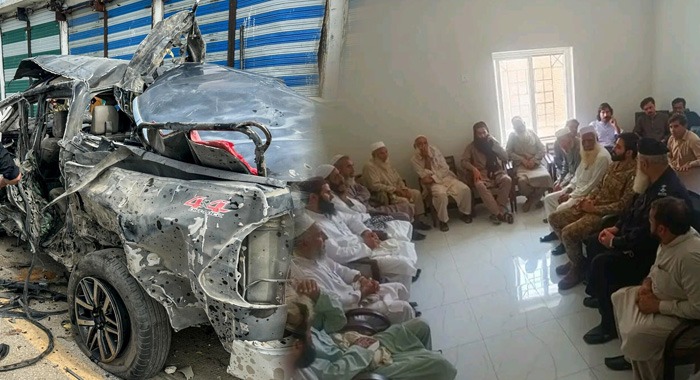In a renewed show of unity against militant violence, security officials convened a significant jirga at the Mai Maula Police Station in Bajaur, bringing together around 30 influential tribal elders and local dignitaries to discuss the security situation and reaffirm joint resolve against the terrorists of outlawed Tehreek-e-Taliban Pakistan, or Fitna al-Khawarij.
The meeting comes amid a tense backdrop of rising terrorist activities, including the target killing of ANP leader Maulana Khanzeb and a deadly bomb blast that martyred an Assistant Commissioner last month. Military officials used the platform to update elders on ongoing counter-terrorism efforts and stressed the critical importance of local cooperation, vigilance, and unity.
Participants acknowledged the gravity of the situation, especially in Loye Mamund, where Khawarij militants recently had entrenched themselves in at least 16 villages. These areas became a focus of the military’s Operation Sarbakaf, a sustained campaign aimed at dismantling militant networks and restoring stability.
The jirga also reflected on earlier peace efforts led by a 50-member delegation, formed through consensus by a grand tribal jirga a few days ago. That delegation had engaged in dialogue with the Khawarij, delivering a clear and final demand: vacate the area peacefully.
The peace committee was given a deadline of 6 PM on August 3 to conclude negotiations. However, the Khawarij have not issued any formal response, citing the need to consult their leadership in Afghanistan.
“The Khawarij have no place among us,” one elder reiterated at the Mai Maula jirga. “This land belongs to its people, not those who bring violence in the name of religion.”
Security officials praised the elders’ efforts and emphasized that lasting peace would only be achieved through continued collaboration between tribal communities and law enforcement agencies. They called on local residents to remain alert, support intelligence-sharing, and resist any attempts by militants to sow fear or misinformation.
The Mai Maula jirga, though one of many efforts, represents a symbolic and strategic step forward, a unified front of tribal tradition and state authority confronting the militant threat together.
As the Khawarij delay their response, the mood on the ground is shifting. What once may have been tolerated in silence is now being met with firm demands and organised resistance, and the people of Bajaur appear increasingly unwilling to let peace slip away again.





